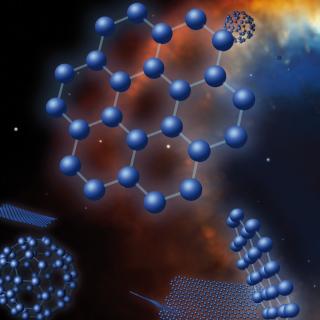Bibcode
Price-Whelan, A. M.; Hogg, David W.; Rix, Hans-Walter; De Lee, Nathan; Majewski, Steven R.; Nidever, David L.; Troup, Nicholas; Fernández-Trincado, José G.; García-Hernández, D. A.; Longa-Peña, Penélope; Nitschelm, Christian; Sobeck, Jennifer; Zamora, O.
Bibliographical reference
The Astronomical Journal, Volume 156, Issue 1, article id. 18, 21 pp. (2018).
Advertised on:
7
2018
Citations
1000
Refereed citations
993
Description
Multi-epoch radial velocity measurements of stars can be used to
identify stellar, substellar, and planetary-mass companions. Even a
small number of observation epochs can be informative about companions,
though there can be multiple qualitatively different orbital solutions
that fit the data. We have custom-built a Monte Carlo sampler (The
Joker) that delivers reliable (and often highly multimodal) posterior
samplings for companion orbital parameters given sparse radial velocity
data. Here we use The Joker to perform a search for companions to 96,231
red giant stars observed in the APOGEE survey (DR14) with ≥3
spectroscopic epochs. We select stars with probable companions by making
a cut on our posterior belief about the amplitude of the variation in
stellar radial velocity induced by the orbit. We provide (1) a catalog
of 320 companions for which the stellar companion’s properties can
be confidently determined, (2) a catalog of 4898 stars that likely have
companions, but would require more observations to uniquely determine
the orbital properties, and (3) posterior samplings for the full orbital
parameters for all stars in the parent sample. We show the
characteristics of systems with confidently determined companion
properties and highlight interesting systems with candidate compact
object companions.
Related projects

Nucleosynthesis and molecular processes in the late stages of Stellar Evolution
Low- to intermediate-mass (M < 8 solar masses, Ms) stars represent the majority of stars in the Cosmos. They finish their lives on the Asymptotic Giant Branch (AGB) - just before they form planetary nebulae (PNe) - where they experience complex nucleosynthetic and molecular processes. AGB stars are important contributors to the enrichment of the
Domingo Aníbal
García Hernández